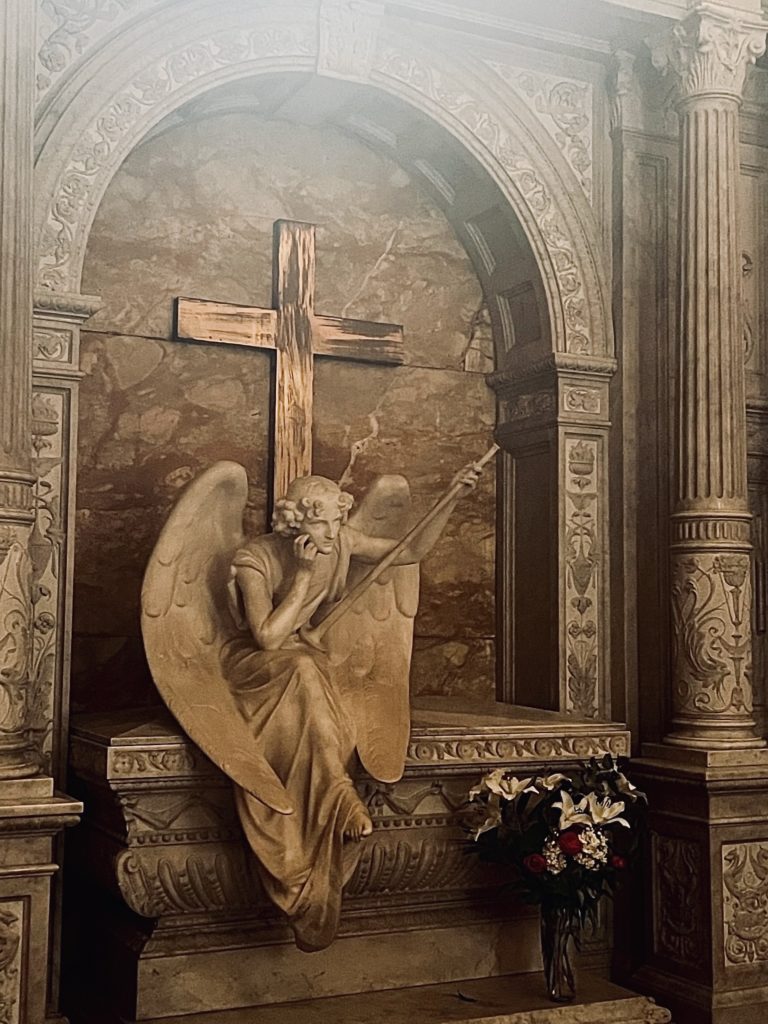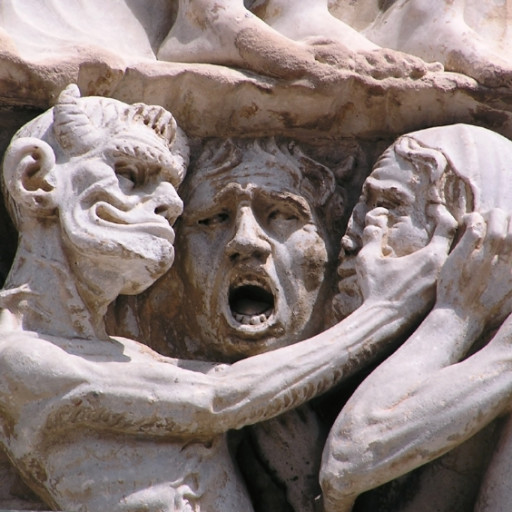 More than fifty years ago, the Catholic Church gave itself a new Mass which broke in a way never seen before with the tradition of the Church. The reformers, however, did not expect the traditional Mass to continue for them. They were even convinced of the contrary. abolition of the traditional Roman mass . commit themselves, as prayers, as seminarians, to celebrating and bringing to life this form of the Roman rite. The latter are often accused of being troublemakers, nostalgics, identity seekers, and above all, crime of lèse-majesté, of being against the Second Vatican Council, which one no longer separates from one's own spirit; this spirit of the council which we feast on without ever really qualifying it, as for almost all important things. In the Church as elsewhere, progressives act by essentializing their opponents in order to discredit them. The liturgy is the summit and the source of the life of the Church, as the last council reminds us, and the liturgy is tradition. To resolve the crisis of the liturgy that she carries within her, the Church will have to reweave the threads of damaged and wounded tradition, even and above all, if the time urges her not to do so.
More than fifty years ago, the Catholic Church gave itself a new Mass which broke in a way never seen before with the tradition of the Church. The reformers, however, did not expect the traditional Mass to continue for them. They were even convinced of the contrary. abolition of the traditional Roman mass . commit themselves, as prayers, as seminarians, to celebrating and bringing to life this form of the Roman rite. The latter are often accused of being troublemakers, nostalgics, identity seekers, and above all, crime of lèse-majesté, of being against the Second Vatican Council, which one no longer separates from one's own spirit; this spirit of the council which we feast on without ever really qualifying it, as for almost all important things. In the Church as elsewhere, progressives act by essentializing their opponents in order to discredit them. The liturgy is the summit and the source of the life of the Church, as the last council reminds us, and the liturgy is tradition. To resolve the crisis of the liturgy that she carries within her, the Church will have to reweave the threads of damaged and wounded tradition, even and above all, if the time urges her not to do so.
Which Vatican II?
"The new Ordo Missae, if we consider the new elements, susceptible to very different appreciations, which seem implied or implied therein, departs in an impressive way, as a whole as in detail, from the theology of the Holy Mass, as it was formulated at the XXII session of the Council of Trent, which, by definitively fixing the "canons" of the rite, raised an impassable barrier against any heresy which could undermine the integrity of the Mystery” 2 Cardinal Ottaviani, prefect emeritus of the Congregation for the Doctrine of the Faith addressed Paul VI on September 3, 1969, we were a few weeks away from the entry into force of the new mass. In a way, this concluded the Second Vatican Council which had however closed its doors for four years! Let's dwell a little on the figure of Cardinal Alfredo Ottaviani: the son of a baker, from the poor neighborhoods of Rome, he turned out to be a very good student at the Roman pontifical seminary, and obtained three doctorates, in theology, philosophy and canon law. . Secretary of the Holy Office, then proprefect of the Congregation for the Doctrine of the Faith, he worked the four years preceding the council to prepare the themes to be treated and pronounced the habemus papam for the election of John XXIII. This month of October 1962 will see the masks fall and positions, progressive or modernist, appear. John XXIII, in his opening speech of the Council, will display a certain contempt for the curial team of Pius XII by declaring: "The Spouse of Christ prefers to resort to the remedy of mercy, rather than brandishing the weapons of severity . She believes that, rather than condemning, she responds better to the needs of our time, by emphasizing the riches of her doctrine. » 3 There is in this sentence a dichotomy which inaugurates and prefigures the whole Second Vatican Council: can there be mercy if there is no condemnation of an act? Why should there be a remedy if there is no wound before? Didn't we see the will to put sin under the rug like a troublesome dust? The tone used where leniency asserts itself as the supreme authority will become the leitmotif of the Second Vatican Council. Therefore a sling is organized. The texts prepared by the curia are rejected. Notably De fontibus revelationis , on the sources of revelation, and De Ecclesia . An absolute majority was needed to ratify this rejection, John XXIII gave his agreement and was satisfied with the relative majority. “Thus was carried out a veritable coup d'etat, by which all the liberal tendencies, in the process of organizing themselves into a 'conciliar majority', snatched doctrinal power from the Curia inherited from Pius XII. » 4 . From then on, and since the working texts had been trampled on and discarded, work began on the liturgy. We thought the unifying subject. The progressives had an agenda as usual, which the conservatives almost never have. Cardinal Ottaviani, on October 30, 1962, took the floor, he was not yet blind and was going to show clairvoyance, he asked that the rite of the Mass not be treated "like a piece of cloth that is put back fashionable according to the fancy of each generation”. It seemed to the audience that it was too long in its development. He was interrupted without regard to his rank. His microphone was cut to the applause of a large number of Fathers. The Second Vatican Council could begin.


